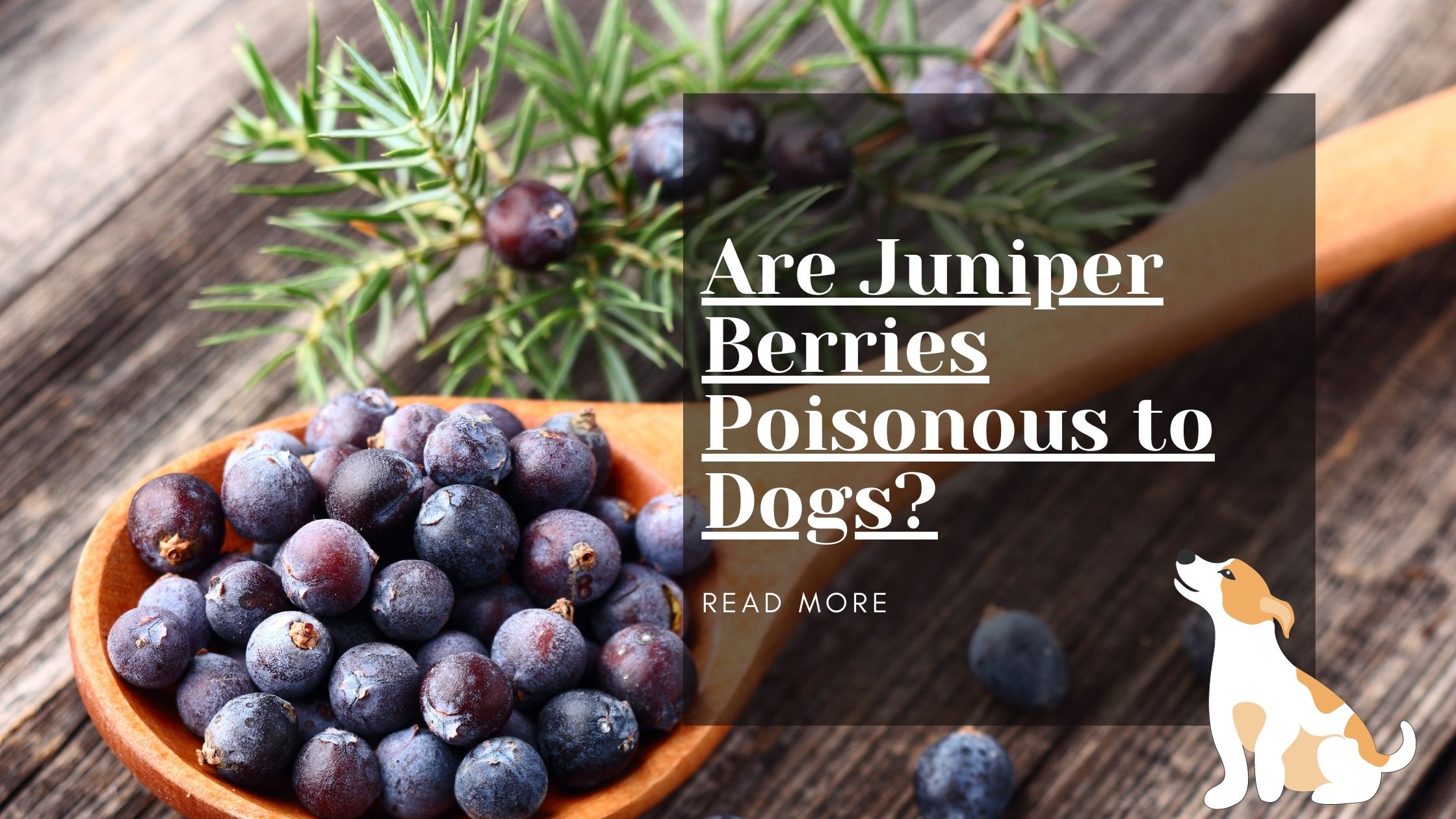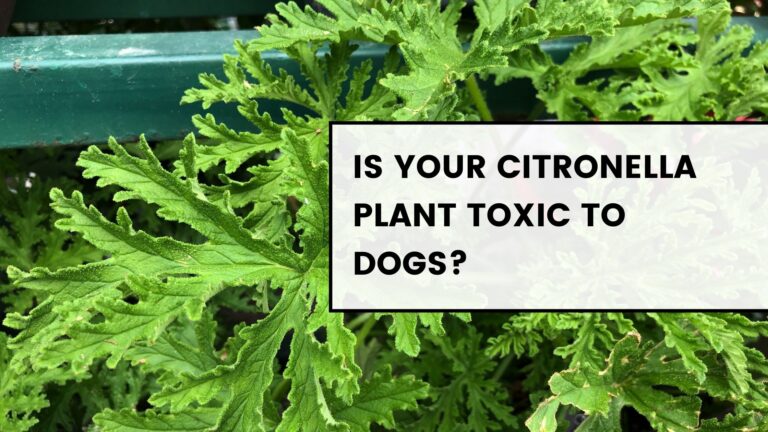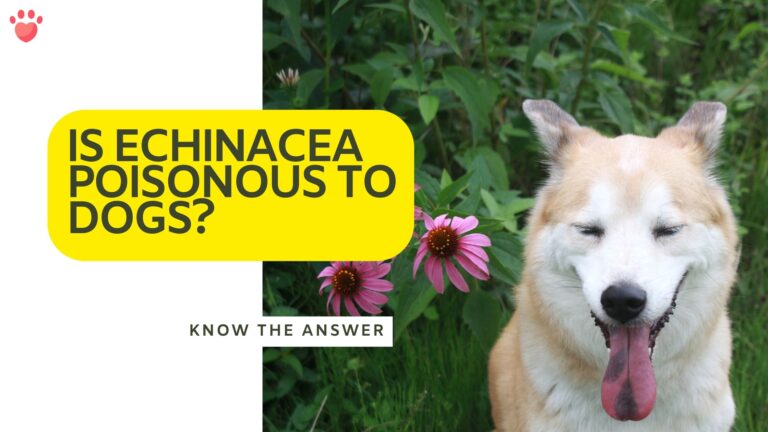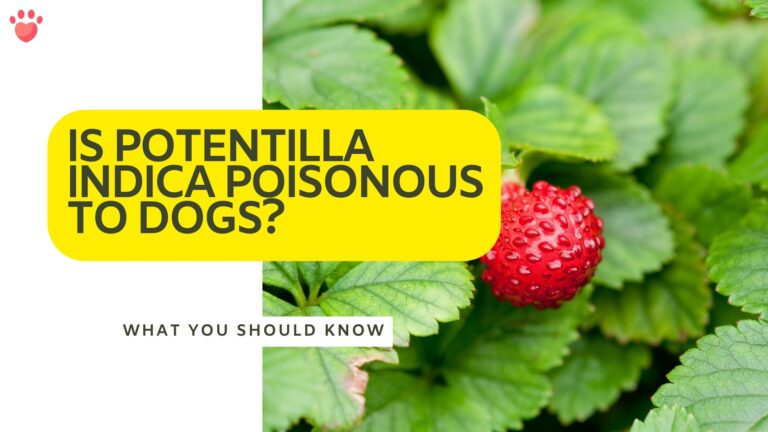Are Juniper Berries Poisonous to Dogs? What You Need to Know

Are you worried about your pup eating juniper berries? We’ve all been there too. As much as we try to keep an eye on our furry friends, those mischievous little pups seem to find anything they want- and that includes the evergreen shrub that is juniper. So, are these berries really dangerous for dogs? You may have heard some conflicting information online, so it’s important that you know the facts before making any decisions.
In this article I will answer all of your questions regarding juniper berry toxins and pet safety. After reading my research and experience with various animals, from hamsters to horses, you will gain a better understanding of what type of precautions should be taken when dealing with these plants around pets. I’m here to give you the peace of mind of knowing that if your dog does consume some berries they won’t get seriously hurt or sick! Let’s dive in and take a closer look at exactly why these birds can be risky for our four-legged friends!
What are Juniper Berries?

When it comes to our furry friends, we always want to keep them safe and sound. That’s why it’s crucial to be aware of what foods and plants can pose a threat to their health. Enter the humble juniper berry.
At first glance, these small, round fruits may seem harmless enough. Their beautiful blue-black hue draws you in, like little jewels nestled among the foliage of the juniper plant. And let’s not forget about that enticing aroma it almost feels like a secret ingredient waiting to elevate your culinary creations.
But here’s where things take a turn for our four-legged pals. Juniper berries contain certain compounds called terpenes, which can be toxic to dogs if ingested in large quantities. These terpenes are responsible for that strong scent we find so delightful but can cause gastrointestinal issues and even kidney damage in our beloved canine companions.
So how do we keep our furry friends safe?
- The first step is awareness now that you know about the potential dangers of juniper berries, make sure they are kept out of reach from your pup.
- If you have a garden or live near areas with wild juniper plants, consider fencing off those areas or training your dog not to go near them.
- If you suspect your dog has ingested any part of the juniper plant or its berries and they start showing signs of illness such as vomiting or diarrhea, don’t hesitate to contact your veterinarian immediately.
Your pup relies on you for protection and care; being mindful of potentially harmful substances like juniper berries is just one way we can ensure their well-being remains intact!
We have covered an extensive guide on Ashwagandha which includes is kousa dogwood fruit poisonous to dogs. Further to better understand the herb and its various uses, we have covered topics like are puffballs poisonous to dogs which you might be interested in. Also, check out our recent posts: can dogs eat chanterelle mushrooms
Why Are Juniper Berries Dangerous for Dogs?
Juniper berries, although small and seemingly harmless, can pose a significant threat to our furry friends. Packed with essential oils, terpenes, and flavonoids, these innocent-looking berries can wreak havoc on a dog’s delicate digestive system.
When consumed by dogs, the compounds found in juniper berries can cause an array of health problems. One such issue is gastrointestinal irritation. The sensitive lining of their stomachs may rebel against these foreign substances, resulting in uncomfortable symptoms like vomiting and diarrhea. Imagine poor Fido having to endure those unpleasant experiences!
Apart from gastric distress, juniper berries can also lead to general stomach upset in dogs. Their digestive systems are not designed to handle the powerful effects of these natural compounds. As a result, they may experience discomfort or even pain as their bodies struggle to process the influx of foreign substances.
To protect our beloved canine companions from falling victim to the potential dangers of juniper berries ingestion, it is crucial for us humans to be vigilant. Keep them away from areas where these tempting little fruits might be found whether that means limiting access during walks or carefully monitoring their outdoor adventures.
In conclusion folks – let’s remember that while we may enjoy adding juniper berries to our culinary creations or using them for medicinal purposes ourselves (in moderate amounts), they should never find their way into our four-legged friends’ paws!
Also Read: https://cleverdogcare.com/is-echinacea-poisonous-to-dogs/
Symptoms of Juniper Berry Poisoning in Dogs

Juniper berries may seem harmless, but they can spell trouble for our furry friends. If your dog happens to gobble up these tiny berries or consume any products containing them, it’s crucial to be aware of the potential signs of poisoning. Keep a close eye on your canine companion and watch out for any unusual behavior.
The first telltale sign that something might be wrong is gastrointestinal distress. Is your dog suddenly vomiting or experiencing diarrhea? These are classic symptoms of juniper berry poisoning. Excessive drooling is another red flag – if you notice your pup slobbering more than usual, it could indicate that those pesky berries have wreaked havoc on their system.
Lethargy and weakness are common side effects as well. If you find your once energetic and playful pooch becoming increasingly sluggish, it’s time to take action. Loss of appetite is yet another sign to watch out for. Has your dog suddenly lost interest in their favorite treats? This could be a result of juniper berry consumption.
In severe cases, the consequences can escalate quickly with dehydration and even seizures occurring. Dehydration can pose serious risks to your pet’s health, so make sure they have access to fresh water at all times during this ordeal. Seizures are undoubtedly alarming and require immediate veterinary attention.
Remember, prevention is better than cure! Ensure that juniper berries or products containing them are kept out of reach from curious snouts!
Also Read: https://cleverdogcare.com/can-dogs-eat-quenepas/
Treatment for Dogs That Consumed Juniper Berries
When it comes to our furry friends, their safety is always a top priority. That’s why it’s important to be aware of the potential dangers lurking around them, even in seemingly harmless objects like juniper berries. These small fruits may look innocent, but they can pose a serious threat if ingested by dogs.
If you suspect that your pup has gotten hold of some juniper berries or is exhibiting signs of poisoning after munching on them, don’t waste any time seek immediate veterinary assistance. Acting swiftly could make all the difference in ensuring your dog’s well-being.
The vet will first assess the situation and determine the best course of action. If your dog has recently consumed the berries, inducing vomiting might be recommended to expel as much of the toxin as possible from their system. This procedure needs to be performed by a professional to ensure its safety and effectiveness.
In other cases where vomiting is not suitable or enough time has passed since ingestion, activated charcoal may be administered instead. This powerful substance works like a sponge, absorbing toxins and preventing their absorption into the bloodstream.
Remember that prevention is always better than cure when it comes to our beloved pets’ health and safety. Keep an eye out for potentially harmful substances like juniper berries and make sure they are securely out of reach from curious paws!
Also Read: https://cleverdogcare.com/can-dogs-eat-quenepas/
Preventing Junipers Berry Toxicity in Dogs
When it comes to keeping our beloved four-legged companions safe, prevention is key. And one simple yet effective way to protect them is by limiting their access to junipers. These prickly plants may seem harmless at first glance, but they can pose a threat to your furry friend if ingested.
So, take a moment to assess your surroundings. Is there a juniper plant within reach of your dog in your garden? If so, it might be wise to relocate or remove it altogether. By doing this, you eliminate the risk of accidental ingestion and the potential harm that these plants can cause.
Now let’s talk about outdoor adventures with our pups in areas where wild junipers thrive. Whether you’re going hiking or camping near such regions, always keep your dog on a leash. This not only ensures their safety but also prevents them from wandering off into areas where they may encounter an abundance of these plants.
In conclusion, protecting our furry friends involves taking proactive measures when it comes to junipers. By preventing access through careful gardening and ensuring leashed walks during outdoor excursions near wild juniper habitats, we can minimize the chances of any harm befalling our beloved companions.
Also Read: https://cleverdogcare.com/is-potentilla-indica-poisonous-to-dogs/
Safe Alternatives for Your DogWhen it comes to treating your four-legged buddy, you want to make sure they’re getting the best of the best. And hey, who can blame them for wanting a taste of that juicy goodness? But hold your horses! Not all fruits are created equal in terms of doggo safety.
Let’s start with the dangerous side of things – grapes. These seemingly innocent little orbs can actually be toxic to our canine pals. They contain compounds that can cause kidney damage and even lead to kidney failure. Yikes! So, it’s essential to keep those grapes far away from Fido’s snack bowl.
Now, onto the good stuff – safe alternatives that will have tails wagging with delight! First up, we’ve got blueberries; these tiny bursts of flavor are packed with antioxidants and vitamins that promote good health for our furry friends. Strawberries also make an excellent choice, providing a sweet treat while being low in calories and high in vitamin C.
If you want something crisp and crunchy, reach for an apple. Just remember to remove the seeds and core first as these parts contain cyanide which is definitely not what we want hanging around our pup’s tummy (or any other living creature!). Lastly, watermelon is a fantastic option during those scorching summer days; its hydrating properties will help keep your dog cool and refreshed.
So there you have it – plenty of safe fruit options for your beloved pooch without having to worry about any toxic repercussions. Treat time just got tastier and safer at the same time!
Consulting Your Vet

When it comes to our furry friends, their health and well-being are of utmost importance. That’s why it’s crucial to be aware of what they consume, including those tempting juniper berries that may catch their eye during a walk or hike. While these small blue wonders might look harmless, it’s essential to exercise caution.
Juniper berries can pose potential risks to our canine companions if ingested in large quantities. They contain essential oils and glycosides that could potentially irritate the digestive system or cause other adverse effects. It’s always better to err on the side of caution when it comes to your doggo’s diet.
If you suspect your pup has sampled some juniper berries during one of your outdoor adventures, take note of any unusual symptoms such as vomiting, diarrhea, or excessive drooling. Don’t panic just yet though! Each dog is unique with different tolerances and sensitivities; what might affect one pooch could have no effect on another.
In instances like these, consulting a veterinarian is key. They possess the expertise needed to evaluate the situation based on factors like breed, size, and overall health condition – much like an expert detective solving a case! Following their guidance will help ensure your four-legged friend receives the specific care and attention required for their individual circumstances.
Remember: when it comes to your beloved companion’s well-being, professional advice is invaluable. So if those juniper berries start beckoning from afar or you notice any worrisome signs after ingestion don’t hesitate! Reach out for expert assistance because nothing beats having peace of mind when it comes to our furry family members’ health journey!
Also Read: https://cleverdogcare.com/can-dogs-eat-de-la-rosa-mazapan/
FAQ
1. Can dogs eat juniper berries?
– Dogs should not consume juniper berries as they can be toxic to them.
2. Are juniper berries poisonous for dogs if ingested?
– Yes, when eaten in large quantities, juniper berries can be harmful and potentially poisonous to dogs.
3. What are the symptoms of juniper berry poisoning in dogs?
– If a dog accidentally consumes juniper berries, they may exhibit symptoms such as vomiting, diarrhea, abdominal pain, increased thirst or urination, lethargy, and even potential kidney damage.
4. How much is too much for a dog when it comes to consuming juniper berries?
– Even small amounts of juniper berries can cause adverse effects on dogs due to their toxicity. It’s best to keep your furry friend away from these fruits altogether.
5. What should I do if my dog has eaten some juniper berries?
– If you suspect that your dog has ingested any amount of juniper berries, it’s crucial to contact your veterinarian immediately for guidance. They will provide advice based on the specific situation and may recommend observation or further treatment depending on the severity of the ingestion.






